×
![]()
tanglegram4: Instance-to-Instance Comparison Results
| Type: | Instance |
| Submitter: | Falk Hueffner |
| Description: | The NP-hard Balanced Subgraph problem (variant of MaxCut) encoded as ILPs. Real-world instances from two applications from bioinformatics, finding monotone subsystems in gene regulatory networks (http://dx.doi.org/10.1007/s10878-009-9212-2) and finding optimal layouts of tanglegrams (http://dx.doi.org/10.1007/978-3-642-11269-0). |
| MIPLIB Entry |
Parent Instance (tanglegram4)
All other instances below were be compared against this "query" instance.  |
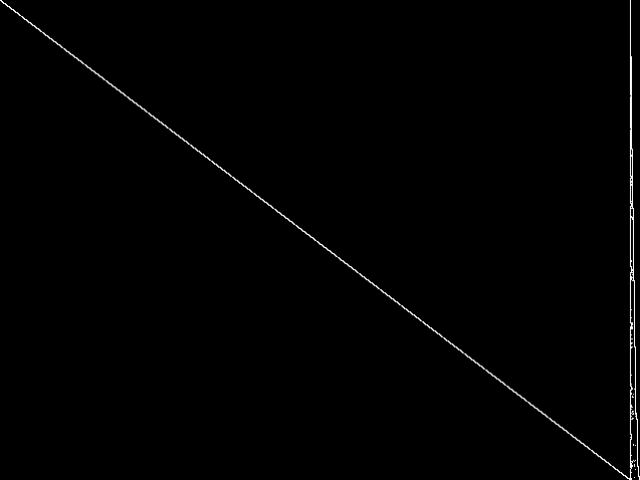 |
 |
 |
 |
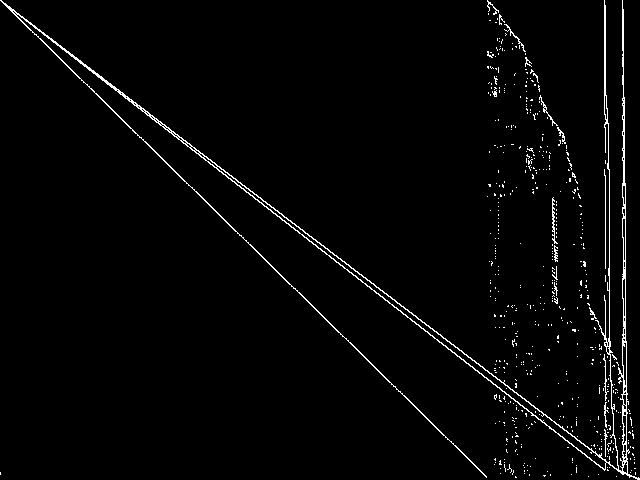 |
|
Raw
This is the CCM image before the decomposition procedure has been applied.
|
Decomposed
This is the CCM image after a decomposition procedure has been applied. This is the image used by the MIC's image-based comparisons for this query instance.
|
Composite of MIC Top 5
Composite of the five decomposed CCM images from the MIC Top 5.
|
Composite of MIPLIB Top 5
Composite of the five decomposed CCM images from the MIPLIB Top 5.
|
Model Group Composite Image
Composite of the decomposed CCM images for every instance in the same model group as this query.
|
MIC Top 5 Instances
These are the 5 decomposed CCM images that are most similar to decomposed CCM image for the the query instance, according to the ISS metric.  |
Decomposed
These decomposed images were created by GCG.
|
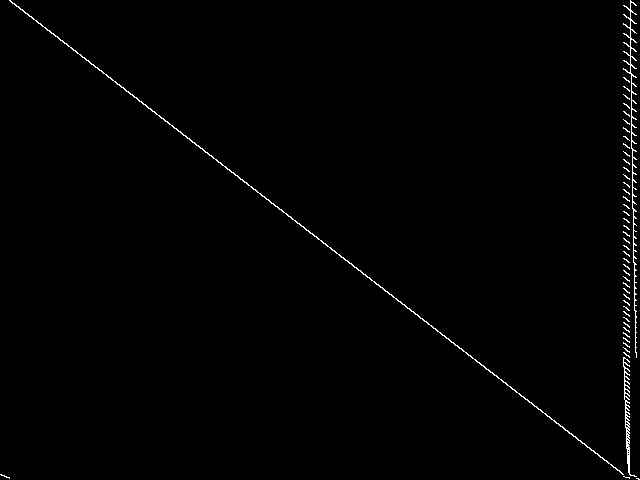 |
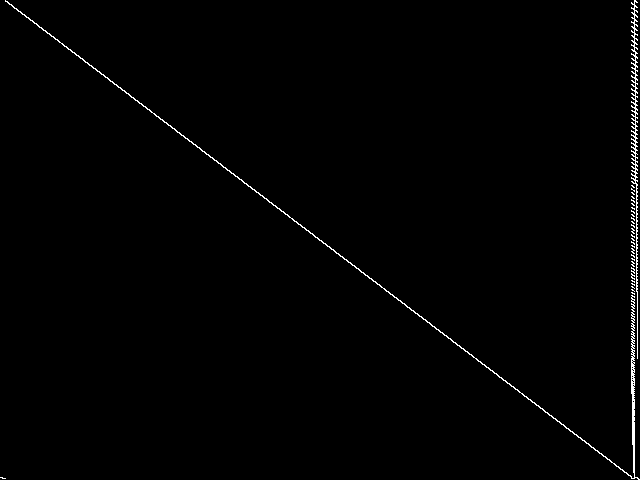 |
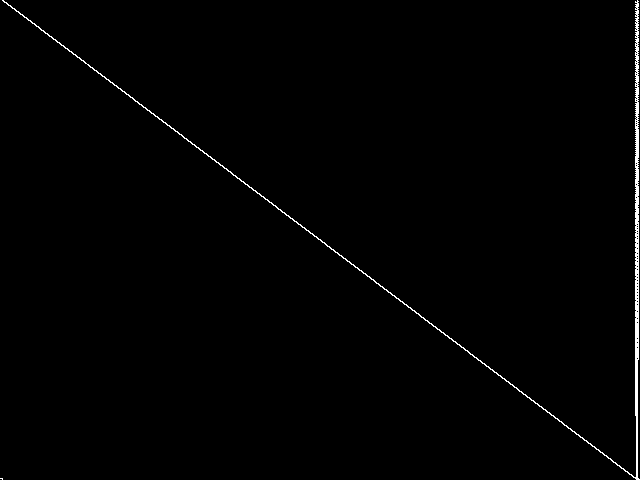 |
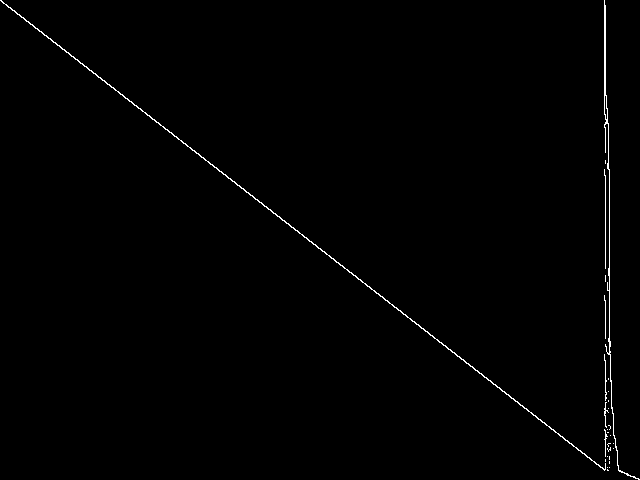 |
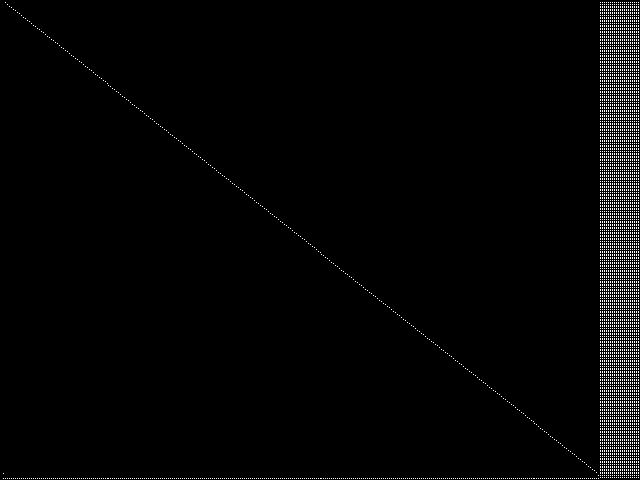 |
| Name | fhnw-schedule-paira100 [MIPLIB] | fhnw-schedule-paira200 [MIPLIB] | fhnw-schedule-paira400 [MIPLIB] | tanglegram6 [MIPLIB] | probportfolio [MIPLIB] | |
|
Rank / ISS
The image-based structural similarity (ISS) metric measures the Euclidean distance between the image-based feature vectors for the query instance and all other instances. A smaller ISS value indicates greater similarity.
|
1 / 0.278 | 2 / 0.298 | 3 / 0.318 | 4 / 0.447 | 5 / 0.449 | |
|
Raw
These images represent the CCM images in their raw forms (before any decomposition was applied) for the MIC top 5.
|
 |
 |
 |
 |
 |
MIPLIB Top 5 Instances
These are the 5 instances that are most closely related to the query instance, according to the instance statistic-based similarity measure employed by MIPLIB 2017  |
Decomposed
These decomposed images were created by GCG.
|
 |
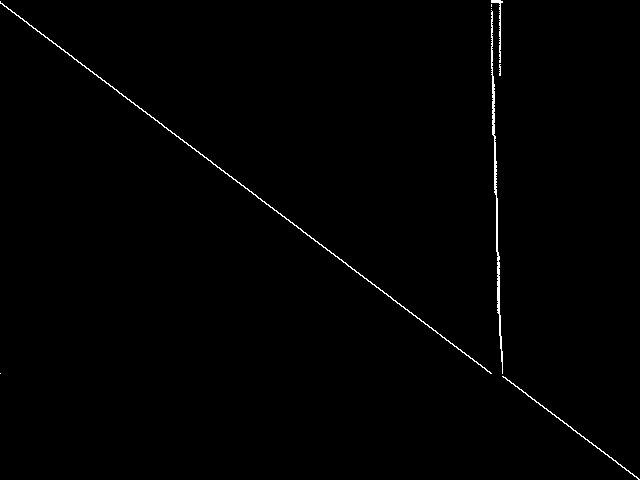 |
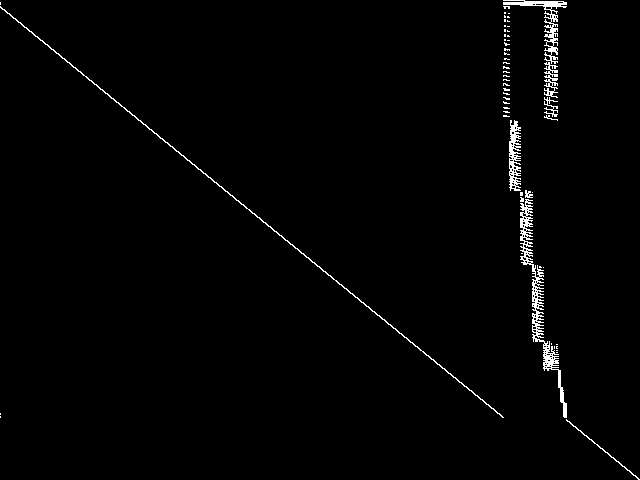 |
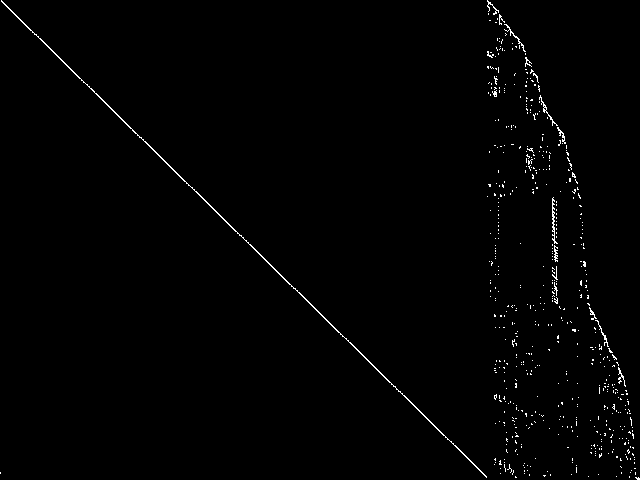 |
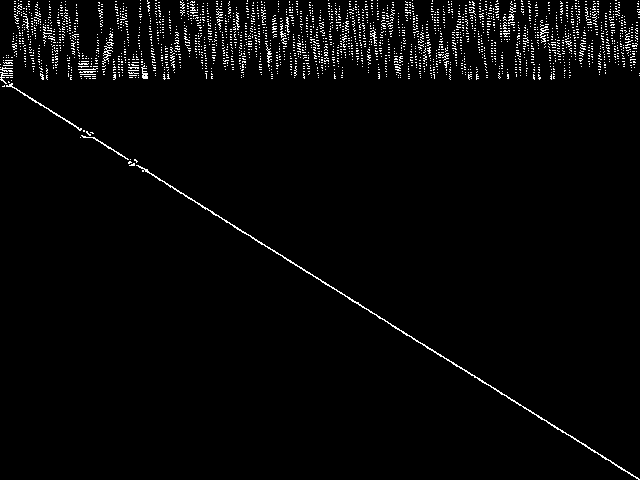 |
| Name | tanglegram6 [MIPLIB] | vpphard2 [MIPLIB] | vpphard [MIPLIB] | toll-like [MIPLIB] | 30_70_45_095_100 [MIPLIB] | |
|
Rank / ISS
The image-based structural similarity (ISS) metric measures the Euclidean distance between the image-based feature vectors for the query instance and all model groups. A smaller ISS value indicates greater similarity.
|
4 / 0.447 | 47 / 0.833 | 354 / 1.343 | 413 / 1.427 | 652 / 1.755 | |
|
Raw
These images represent the CCM images in their raw forms (before any decomposition was applied) for the MIPLIB top 5.
|
 |
 |
 |
 |
 |
Instance Summary
The table below contains summary information for tanglegram4, the five most similar instances to tanglegram4 according to the MIC, and the five most similar instances to tanglegram4 according to MIPLIB 2017.
| INSTANCE | SUBMITTER | DESCRIPTION | ISS | RANK | |
|---|---|---|---|---|---|
| Parent Instance | tanglegram4 [MIPLIB] | Falk Hueffner | The NP-hard Balanced Subgraph problem (variant of MaxCut) encoded as ILPs. Real-world instances from two applications from bioinformatics, finding monotone subsystems in gene regulatory networks (http://dx.doi.org/10.1007/s10878-009-9212-2) and finding optimal layouts of tanglegrams (http://dx.doi.org/10.1007/978-3-642-11269-0). | 0.000000 | - |
| MIC Top 5 | fhnw-schedule-paira100 [MIPLIB] | Simon Felix | Continuous-time project scheduling and selection, inspired by an industry use-case. Each project has a value, the sum should be maximized. Each project has a deadline, and an earliest start date. Three formulations of the same problem ("Pair A", "Pair B" and "Slot") - we expect "Pair B" to be the best formulation. | 0.278018 | 1 |
| fhnw-schedule-paira200 [MIPLIB] | Simon Felix | Continuous-time project scheduling and selection, inspired by an industry use-case. Each project has a value, the sum should be maximized. Each project has a deadline, and an earliest start date. Three formulations of the same problem ("Pair A", "Pair B" and "Slot") - we expect "Pair B" to be the best formulation. | 0.298348 | 2 | |
| fhnw-schedule-paira400 [MIPLIB] | Simon Felix | Continuous-time project scheduling and selection, inspired by an industry use-case. Each project has a value, the sum should be maximized. Each project has a deadline, and an earliest start date. Three formulations of the same problem ("Pair A", "Pair B" and "Slot") - we expect "Pair B" to be the best formulation. | 0.317678 | 3 | |
| tanglegram6 [MIPLIB] | Falk Hueffner | The NP-hard Balanced Subgraph problem (variant of MaxCut) encoded as ILPs. Real-world instances from two applications from bioinformatics, finding monotone subsystems in gene regulatory networks (http://dx.doi.org/10.1007/s10878-009-9212-2) and finding optimal layouts of tanglegrams (http://dx.doi.org/10.1007/978-3-642-11269-0). | 0.447040 | 4 | |
| probportfolio [MIPLIB] | Feng Qiu | Sample average approximation formulation of a probabilistic portfolio optimization problem. Solved using ug[SCIP/spx], a distributed massively parallel version of SCIP run on 2,000 cores at the HLRN-II super computer facility. | 0.449497 | 5 | |
| MIPLIB Top 5 | tanglegram6 [MIPLIB] | Falk Hueffner | The NP-hard Balanced Subgraph problem (variant of MaxCut) encoded as ILPs. Real-world instances from two applications from bioinformatics, finding monotone subsystems in gene regulatory networks (http://dx.doi.org/10.1007/s10878-009-9212-2) and finding optimal layouts of tanglegrams (http://dx.doi.org/10.1007/978-3-642-11269-0). | 0.447040 | 4 |
| vpphard2 [MIPLIB] | C. Cardonha | Vehicle positioning problem instance. Solved using CPLEX 12.4 in 43987 seconds (May 2012). Solved using Gurobi 5.6.2 in 124 seconds (May 2014).Solved using CPLEX 12.6 in 225 seconds (May 2014). | 0.832524 | 47 | |
| vpphard [MIPLIB] | C. Cardonha | Vehicle positioning problem instance | 1.342771 | 354 | |
| toll-like [MIPLIB] | Falk Hueffner | The NP-hard Balanced Subgraph problem (variant of MaxCut) encoded as ILPs. Real-world instances from two applications from bioinformatics, finding monotone subsystems in gene regulatory networks (http://dx.doi.org/10.1007/s10878-009-9212-2) and finding optimal layouts of tanglegrams (http://dx.doi.org/10.1007/978-3-642-11269-0). Solved by Gurobi 4.6 (8 threads) in about four days after a variable transformation reducing symmetry. | 1.427500 | 413 | |
| 30_70_45_095_100 [MIPLIB] | J. Walser | Geographic radar station allocation | 1.754562 | 652 |
tanglegram4: Instance-to-Model Comparison Results
| Model Group Assignment from MIPLIB: | huefner |
| Assigned Model Group Rank/ISS in the MIC: | 25 / 1.587 |
MIC Top 5 Model Groups
These are the 5 model group composite (MGC) images that are most similar to the decomposed CCM image for the query instance, according to the ISS metric.  |
These are model group composite (MGC) images for the MIC top 5 model groups.
|
 |
 |
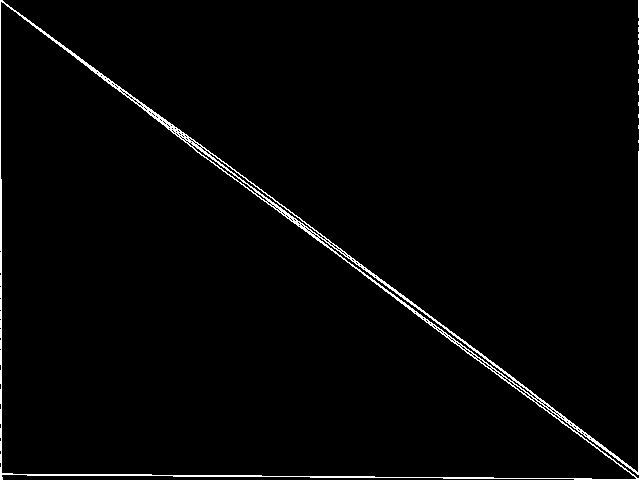 |
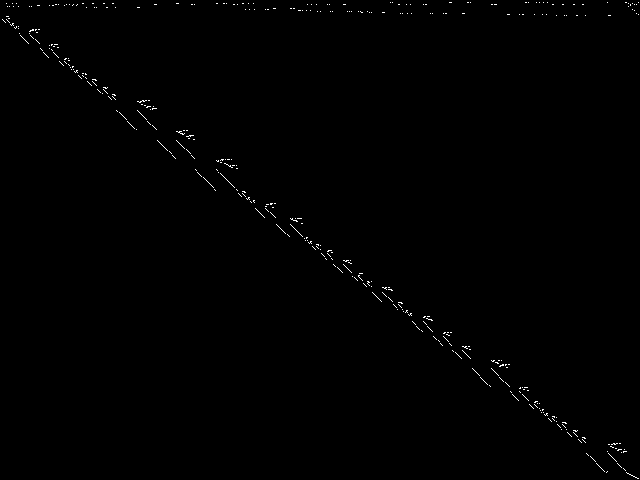 |
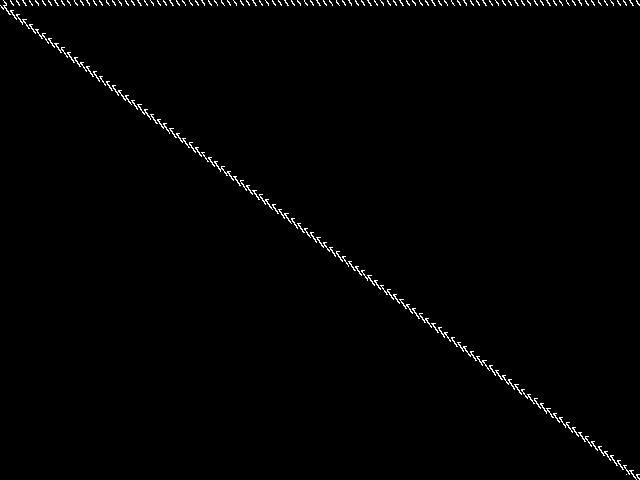 |
| Name | map | rmatr | polygonpack | sp_product | n37 | |
|
Rank / ISS
The image-based structural similarity (ISS) metric measures the Euclidean distance between the image-based feature vectors for the query instance and all other instances. A smaller ISS value indicates greater similarity.
|
1 / 0.654 | 2 / 0.770 | 3 / 0.786 | 4 / 0.940 | 5 / 1.015 |
Model Group Summary
The table below contains summary information for the five most similar model groups to tanglegram4 according to the MIC.
| MODEL GROUP | SUBMITTER | DESCRIPTION | ISS | RANK | |
|---|---|---|---|---|---|
| MIC Top 5 | map | Kiyan Ahmadizadeh | Land parcel selection problems motivated by Red-Cockaded Woodpecker conservation problem | 0.653955 | 1 |
| rmatr | Dmitry Krushinsky | Model coming from a formulation of the p-Median problem using square cost matrices | 0.769700 | 2 | |
| polygonpack | Antonio Frangioni | Given a set P of polygons, not necessarily convex, and a rectangle, we want to find the subset S of P with largest possible total area and a position every p in S so that there are no overlaps and they are all included in the rectangle. We allow a small set of rotations (0, 90, 180, 270 degrees) for every polygon. The problem is simplified w.r.t. the real application because the polygons do not have (fully encircled) "holes", which are supposedly filled-in separately, although they can have "bays". Models are saved as .lp. Model LpPackingModel_Dim means that we are trying to pack polygons taken from set ; there are currently 5 different sets, and is 7, 10 or 15. | 0.785629 | 3 | |
| sp_product | MIPLIB submission pool | Imported from the MIPLIB2010 submissions. | 0.940195 | 4 | |
| n37 | J. Aronson | Fixed charge transportation problem | 1.014531 | 5 |

